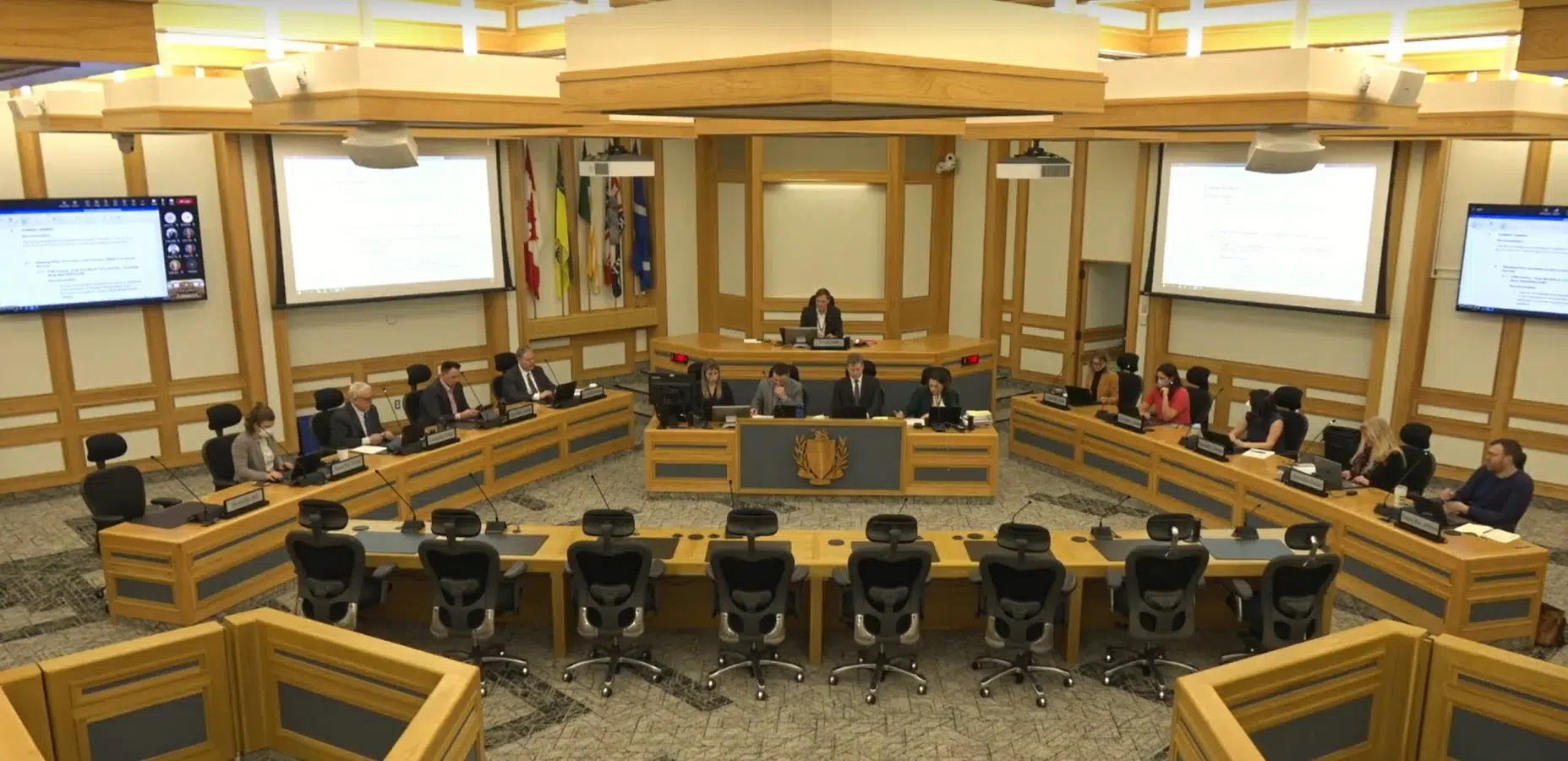Potential for Affordable Housing
Saskatoon City Council has agreed to explore development options for a parcel of land near the Riversdale neighborhood.
According to Administration, if the site at 1202 19th Street West can be developed, it has potential to support those experiencing housing insecurity. Currently, the majority of the lot is impacted by encampments and illegal dumping.
Director of Planning and development Leslie Anderson says because of the site’s current state, Administration will be applying for the Province’s Impacted Sites Fund in order to clean it up. Anderson explains what happens if that funding is approved.
“We would then also be exploring the development options and the potential partnerships for the site with a focus on creation a build form that supports individuals experiencing housing insecurity and/or addressing other community and social considerations.”
She adds that a portion of the site is currently used by the Rotary Community Garden for raised-bed container gardening, and arrangements could be made to ensure a similar program remains in the area.
SK Recycles
Council has also approved a motion to move forward with the decision to allow the province to take over municipal recycling duties.
Last May, the Ministry of Environment approved a plan that allows provincial entity SK Recycles to take responsibility for both collection and recycling in municipalities across the province. Municipalities were asked to get on board with this shift by December 1st, 2027.
During a March Environment, Utilities and Corporate Services Committee meeting, Saskatoon’s Director of Water and Waste Operations, Brendan Lemke, explained what adopting the SK Recycles Led Collection Model would look like. “In this option, SK Recycles would provide collections, education, customer service, and processing. The City no longer has a role and therefor would have no requirement for reporting and no payments from SK Recycles…The City would also no longer control service levels for recycling, including acceptable materials, collections dates, frequency, etc.,” He added that the current Loraas collection contract expires on December 31st, 2027, and the Cosmopolitan Industries processing contract doesn’t expire until 2029. Because SK Recycles would be taking over by January 1st, 2028, this creates a two-year overlap that needs to be figured out.
Wednesday, General Manager of Utilities and Environment Angela Gardiner stated that although this decision would impact the involvement of the City, Loraas, and Cosmopolitan industries, it would save Saskatoon residents money.
“From a utility perspective, there will be a reduction in the recycling utility. There are some ballpark numbers in the report, so there is a significant reduction there, but it will all depend on what kind of service levels Council wants to continue providing relating to recycling.”
She adds that Administration will do up a detailed funding strategy which will be presented in the fall.
Non-Residential to Residential Property Tax Ratio Update
A series of related motions were approved by Saskatoon City Council Wednesday morning to rescind and adjust a previous resolution regarding the non-residential to residential tax ratio.
In March, City Council approved a revenue neutral non-residential to residential tax ratio of 1.88. However, a recent value adjustment, mainly to warehouse properties, resulted in the generation of $7 million in additional municipal property tax revenue beyond what was approved for in Saskatoon’s 2025 budget. To fix the problem, administration is now recommending that a 1.71 tax ratio be adopted, the same ratio that was in place in 2024.
A typical single-family home with an assessed value of $394,200 will see an increase in total property tax of $185 or 4.9% from 2024 to 2025. 2025 Property Tax Notices will be mailed in May, and the property tax payment deadline is June 30.
Following all the confusion for both individuals and business owners, Administration has agreed to engage with the community and stakeholders in finding ways to make its tax policy more clearly understandable in the future.
National Sporting Event
City Council has unanimously agreed to invest $350,000 in the chance to win a bid to host a National Major Sporting Event in 2027.
Discover Saskatoon asked the city for the money this morning at City Council’s regular business meeting. Stephanie Clovechok, CEO of Discover Saskatoon, says if Saskatoon is awarded the bid to host, it would be highly potent in terms of return on investment.
“The projected economic impact includes over $15.7 million in direct business sales, more than $1.7 million in provincial tax revenue, and an estimated 13,862 hotel room nights.”
Discover Saskatoon has also reached out to the Province with a request for $600,000 in financial support to host the event.
Clovechok says the specifics of said event have yet to be revealed, as Saskatoon is in competition with several other Canadian cities and revealing too much could compromise our competitiveness.
Animal Control Bylaw Amendment
City Council also voted in favour of several amendments to Saskatoon’s Animal Control Bylaw.
The amendments will allow for the creation of offences and penalties for providing false information in an application for a license and allowing an animal other than a dog in an off-leash dog park, such as a horse. According to a report that went to the planning, development and community services meeting last month, there have been several instances in which horses have been ridden through the Chief Whitecap off-leash area in Corman Park causing safety issues for both the people and animals involved. Proposed penalties for the offence include $100 the first time, $200 for the second offence, and $300 for each offence that follows.
Not included in the amendment were rules about how many pets are allowed inside a home. Concerned Saskatoon resident Kelsey Stroeder believes the City should revisit that policy.
“Twenty, thirty, forty animals are too much. Right now, there is nothing that limits that. (A limit of) 10 or 12 would not be too much to ask. You can totally separate rescues and breeders from permanent pets.”
Andrew Roberts, Director of Recreation and Community Development says there would be a financial impact to enforce a pet-per-household limit, and there are no resources in the city’s existing budget to do so. However, if directed to do so, Administration would initiate this process regardless.
City Solicitor Cindy Yellen added that Saskatoon does have zoning rules with respect to breeding operations that prohibit breeders from operating out of residential districts.


















